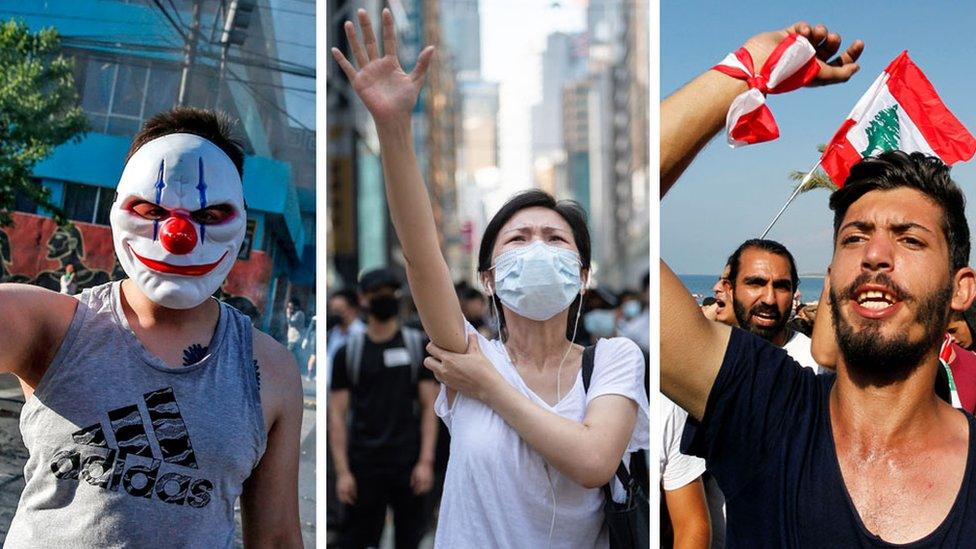Bolivia crisis: Conflict fills political vacuum after Morales
- Published
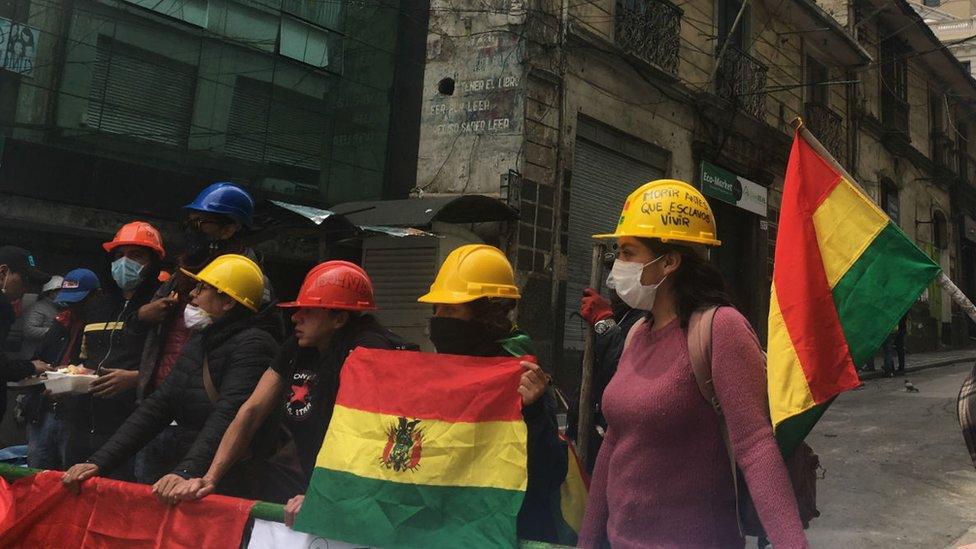
Opponents of Evo Morales have blocked roads in the country's capital
"Yes to democracy, no to dictatorship," chanted Evo Morales' opponents as they stood for another day at the barricades blocking the roads of the country's capital.
Mr Morales may no longer be in power but people here still want to preserve Bolivia's democracy.
They want an interim leader - and that's expected on Tuesday - as well as fresh elections.
But most of all, people here seem tired. They want change.
Rural support
"He only supported people who live in the country, not us," says Elsa Andrade, dressed in a full traditional skirt known as a pollera and a brown bowler hat. She has a red, green and yellow Bolivian flag draped over her shoulders.
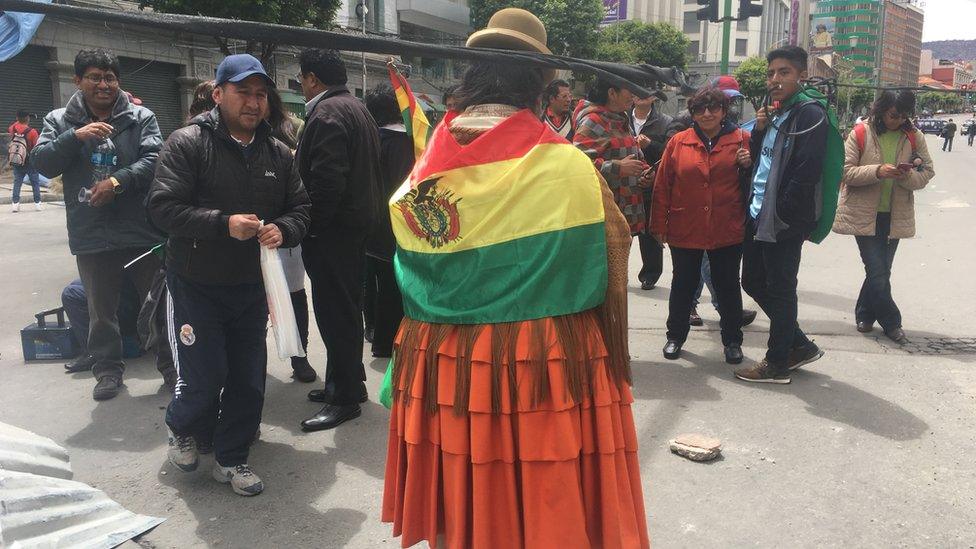
Elsa says Mr Morales made empty promises
"What's he done for us? Nothing. It's all promises, promises."
Barricading La Paz
Further up the road, a group of people wearing hard hats and their faces covered are manning a barricade that leads up to Mr Morales' home and office, known as the "Great Palace of the People". The glass-fronted block with indigenous symbols was seen by many as a garish - and expensive - vanity project. It towers over the smaller, older buildings of central La Paz.
Demonstrator Marco says they're stopping government officials from accessing the building. Every protester has their face covered on this barricade. They say their cause isn't a violent one - they are here to protect shops and people. But they don't want to reveal their identity to government loyalists.
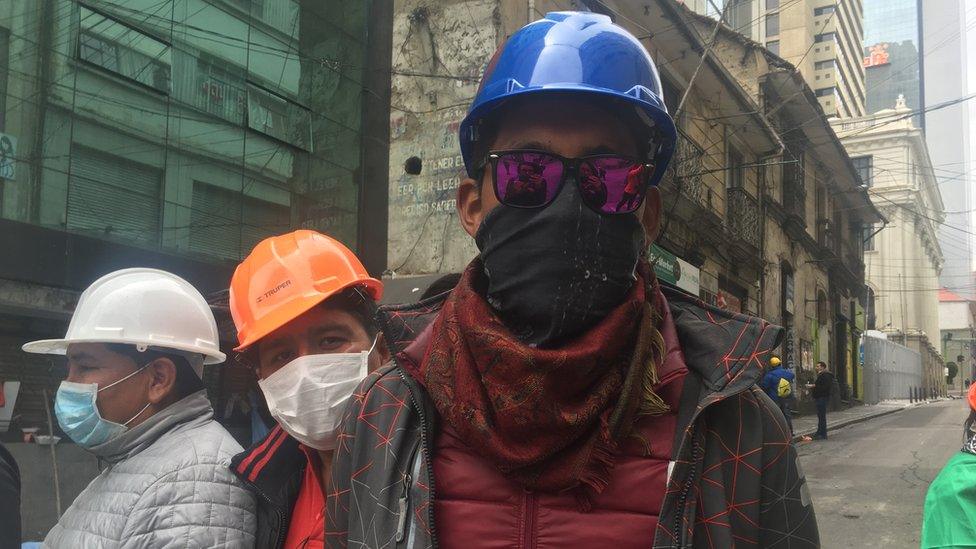
Marco (front) says Mr Morales should not have tried to stay in power
Marco says Mr Morales had his chance and threw it away. The country's first indigenous leader may have given a voice to millions of Bolivians, but he lost his support with what many felt was an increasingly undemocratic way of ruling. The last straw being accusations of electoral fraud.
"Evo Morales could have left through the front door if he had respected what people were saying," says Marco. "But unfortunately he tried to remain in power and that made people not want him anymore."
Ghost towns
Up in El Alto, a city that sits high above La Paz in the Andes, life felt like it had stopped.
The cable car that connects the two cities was paralysed, its cabins bobbing in the air in silence. And a normally bustling market place was deserted, stalls shut for fear of looting. Dania was one of the only shopkeepers willing to take a risk. She needs the money, she says. A supporter of Evo Morales, she says his resignation was nothing short of a coup.
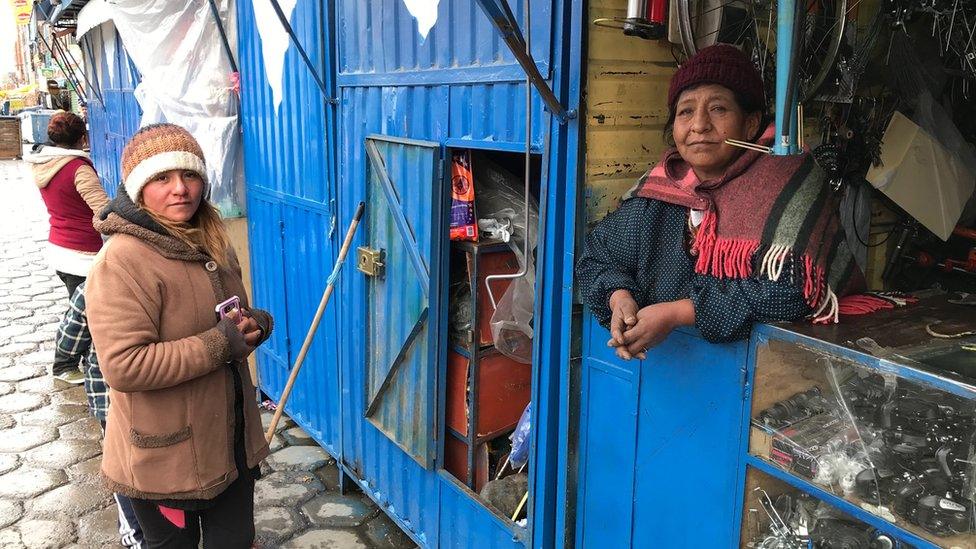
Few market sellers have opened their stalls amid fears of looting
"You have to look at what he's done," she says. "He's put Bolivia on the map. But some people don't value that. Unfortunately, we Bolivians have been very ungrateful."
Fear and instability
Crossing the market, Lucy Choque makes her way to work through the burning rubber tyres that were set alight overnight. She just wants the whole thing to be over.
"We are all afraid, it doesn't matter which side we are on - one party or another," she says. "We're afraid of what's going to happen. I don't agree with the opposition's moves because it's causing instability. Everyone is calling for conflict."
With Mr Morales now headed towards Mexico, the chapter of the longest-standing president currently in Latin America is now closed. But the next chapter in Bolivia's political history is very unclear.
- Published12 November 2019
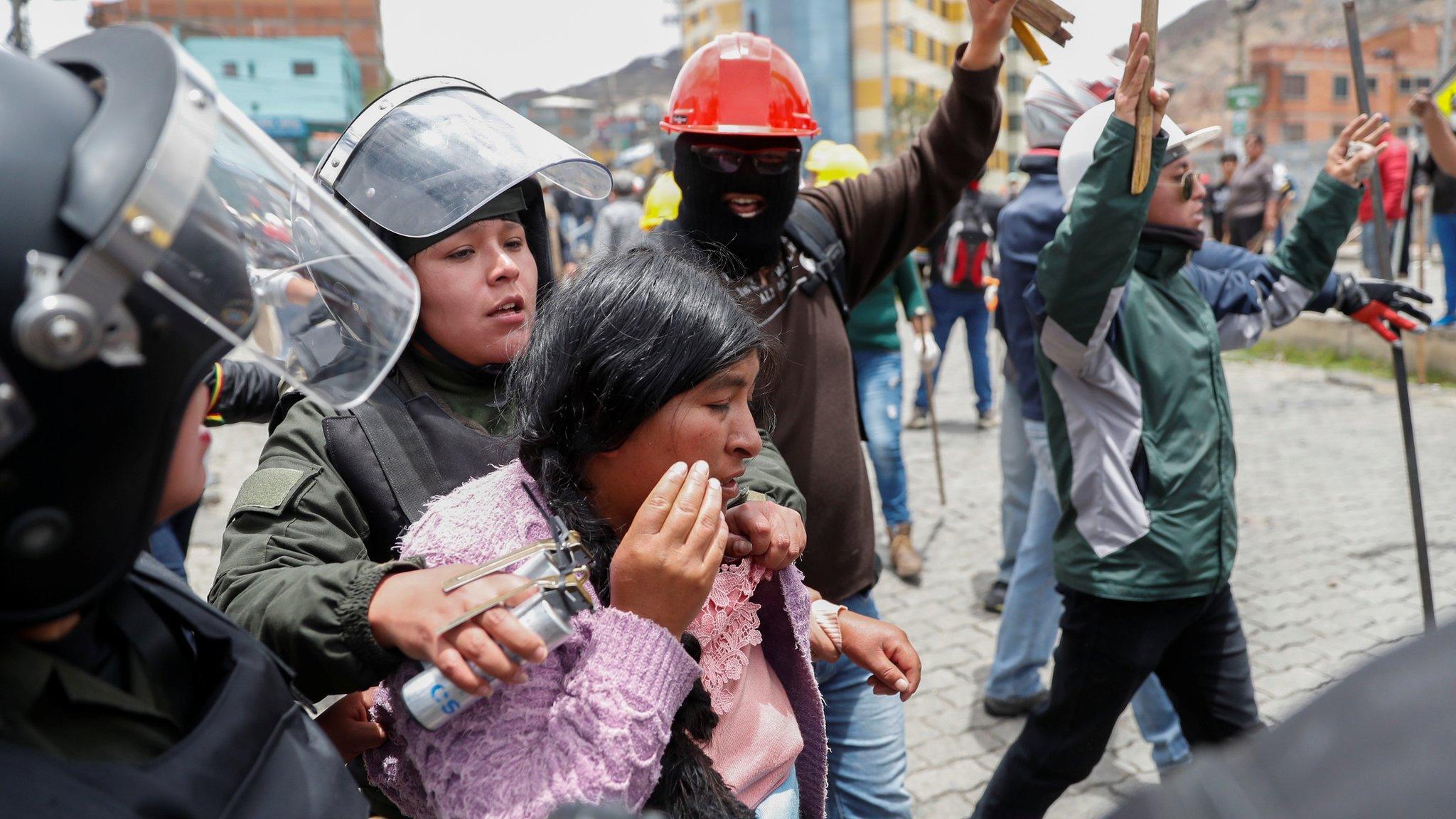
- Published10 November 2019
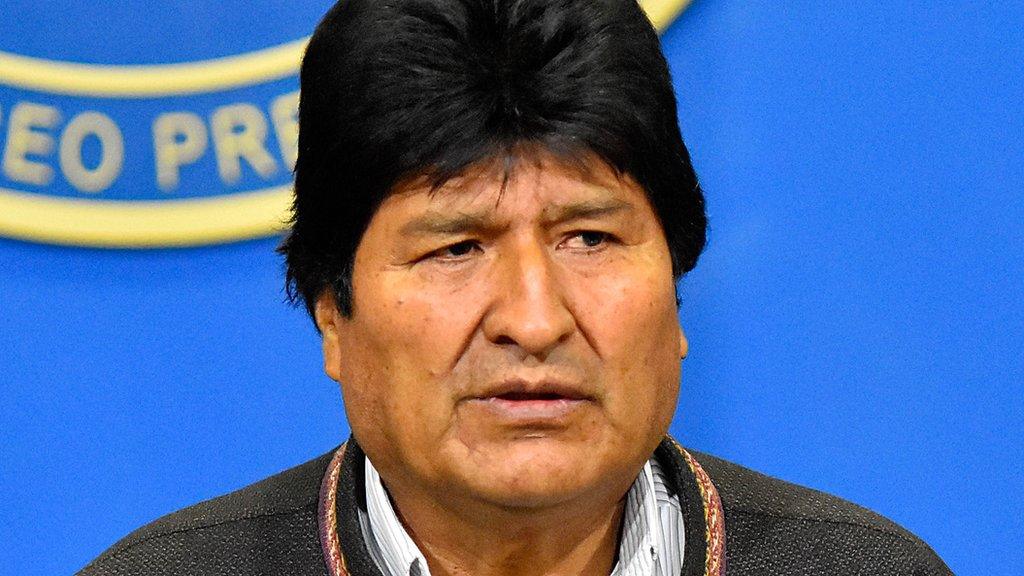
- Published7 February 2023
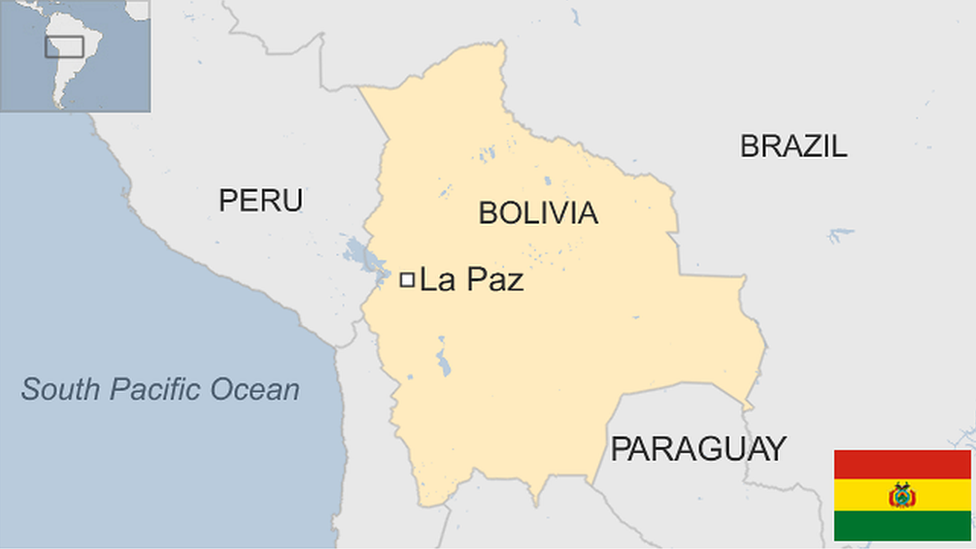
- Published11 November 2019
